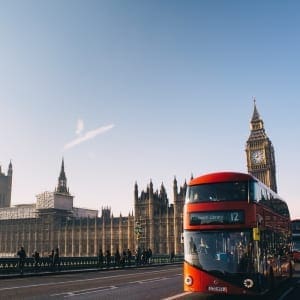 Airbnb is growing at an explosive rate and gunning to become a full-blown hospitality brand, putting even more pressure on large hotel chains to hold onto their customer base. A new research study by iModerate, a progressive insights agency, reveals the consumer preferences behind this growth and details the personas and different expectations of guests who stay at each type of property.
Airbnb is growing at an explosive rate and gunning to become a full-blown hospitality brand, putting even more pressure on large hotel chains to hold onto their customer base. A new research study by iModerate, a progressive insights agency, reveals the consumer preferences behind this growth and details the personas and different expectations of guests who stay at each type of property.
Airbnb Guests Seen as Risk-Taking Extroverts, Hotel Guests as Conservative Introverts: iModerate asked 1,500 consumers nationwide to describe their preferences for staying at an Airbnb rental versus a hotel, their expectations of both experiences and the types of people who prefer to stay at each.
Airbnb patrons were described as adventurous, open and often younger travelers who are willing to take a risk booking a place in the hopes of having a unique, localized experience for a reasonably low price. Location is paramount for these visitors who like to stay in the heart of neighborhoods that often don’t have commercial lodging options and get a “locals” experience. In terms of amenities, WiFi is a must-have, kitchens are a nice bonus and hosts who are helpful, but otherwise leave them alone, are appreciated.
By stark contrast, hotel guests are described as conservative, private and introverted. They value predictable processes and consistent amenities over location, and seek the trust that comes with staying with an organization rather than an individual. They also still appreciate an experience, but instead of venturing out, they consider the hotel itself as a destination and seek relaxation and pampering on property, as well as a set of amenities that meets the brand standard. Hotel guests are also mildly obsessed with towels, linens and, in particular, pillows – an item that wasn’t called out when discussing Airbnb stays.
“While there is considerable contrast between the personas and preferences of Airbnb and hotel guests, it’s a gap that’s getting smaller by the day,” said iModerate CEO Jen Drolet. “There’s an opportunity for Airbnb to lure more traditional hotel guests by focusing on the trust factor, and hotels can compete by adding more localized and distinctive experiences.”
Major hotel chains have expanded to include smaller, boutique brands with the potential to compete more directly with Airbnb by offering localized experiences and personal touches that break the mold of traditional hotel stays. iModerate found consumers expect boutique hotels to deliver a smaller footprint with unique, local flair and a sense of luxury, which are similar to the characteristics they seek from Airbnbs.
“These chains not only have the potential to succeed, but could have a very strong foothold in the travel industry, as they offer the best of both worlds by uniting the more localized aspect of Airbnb with the trust and security that comes with staying at a hotel chain,” said Drolet.



















